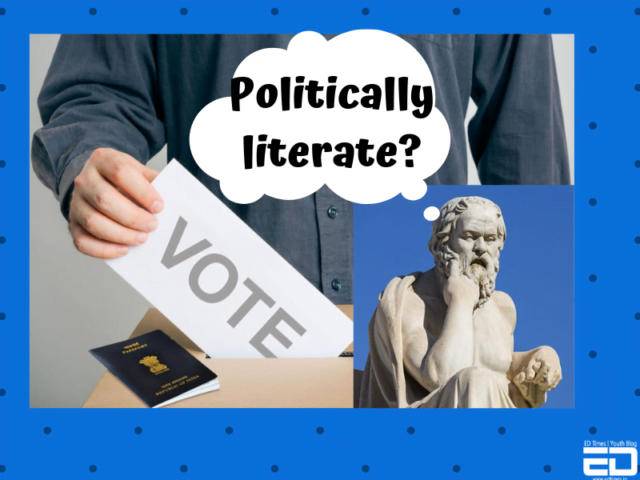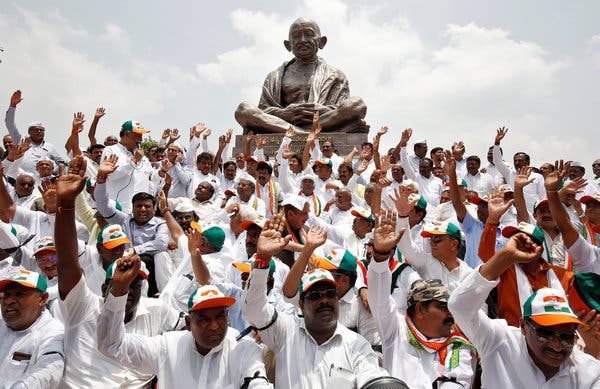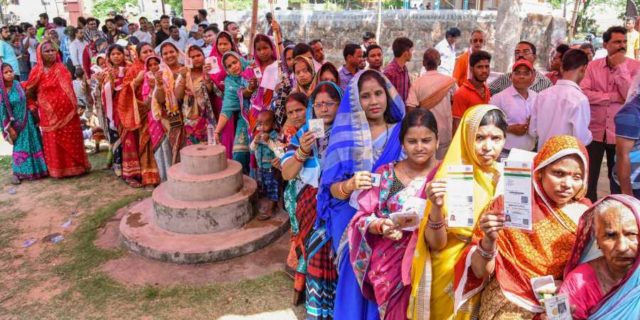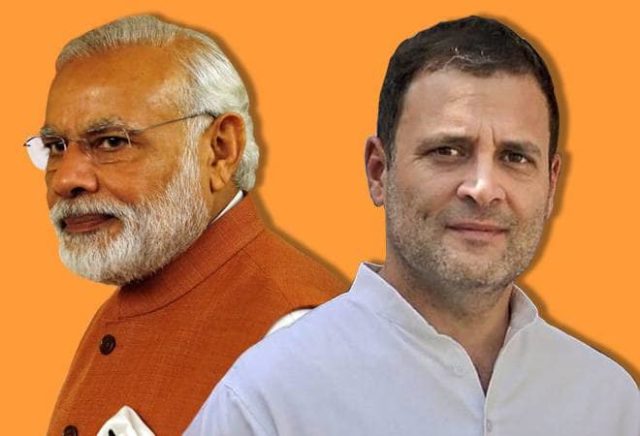With 900 Million registered voters and with the final voter turnout at 67.11%, us Indians have made the Great Indian Election great.
But this is not necessarily a win for democracy as the case of political literacy is still weak in India.
What is Political Literacy?

Political literacy is the basic set of abilities, considered necessary in order to participate in a society’s government. This set of abilities may include an understanding of government working, the important issues faced by the society, as well as the critical thinking skills to accommodate multiple points of view.
In simple words, in order to do basic tasks as an active, vigilant citizen, one needs to have a basic understanding of the society and of the government’s working, and this understanding should not be based on a unilateral perspective, but on several perspectives.
Political literacy includes, amongst other things, participating, i.e. voting. It also includes being an active citizen, knowing what is going in the country and with the government.
Along with that, having a critical understanding of the government’s steps, and voting for the right causes (like development and not caste, religion, etc.).

Had India been a monarchy, autocracy or under a dictator’s rule, political literacy wouldn’t have mattered at all.
But since we are a democracy, we participate in the government functioning, elect our representatives and thus are direct stakeholders.
Also Read: Activism: The key to ensure survival of Democracy. Its necessary.
Hurdles
1.Till Independence
You see, the last time free Indians enjoyed voting rights was in the Harappan or Vedic period when assemblies or Ganas/Sanghas respectively practiced a version of democratic, republican voting.
From the later Vedic period, up until the British conquest of India, us Indians were ruled by monarchs, so voting was out of question.
Then was the 200 years of British rule.
It was because the leaders during the struggle of independence firmly believed in democracy that India became a democratic, republic country.
2. Post Independence
On the eve of independence, voting rights were granted to Indians and we… sort of didn’t know what to do with it. This was because while the average Indian was given the right to vote but they were not educated enough to know how exactly the government functions.
This is a reason why people’s religion and caste became the determining factor of their voting pattern. It had become so widespread that caste arithmetic and Mandal politics had become the overt recipe to ensure an electoral win.
Another feature of this period was that communities were seen voting for a political party or candidate, not out of a candidate or party’s work or manifesto, but because they were socialized to vote for them. Then there was the menace of booth capturing and buying people’s vote.
Elections of 2019

There were some reasons why Indians earned a few extra credits in political literacy in the General elections of 2019:
- Voter turnout was at an all time high of 67.11%. This is an achievement of sorts amid rumours of EVM hacking. Indians have come a long way from thinking their vote won’t matter to believing every vote counts. Still, efforts should be made to bring the missing 33% to the polling booths.
- For the first time in history of Indian elections, the number of female voters was equal to the male voters.
- Though its real outcome and stats are still disputed, the ruling regime publicized its work, especially its schemes that catered to the needs of the common man. This, in a way made the people aware of what the government was doing.
- Dynasts failed to make electoral gains.
- Identity based arithmetic failed to make inroads. In UP, where caste based politics runs strong, the SP-BSP coalition (champions of caste identity) failed.
- In Gujarat, Haryana and Maharashtra, where regional identity runs strong, Gujjars, Jats and Marathis respectively were against BJP, yet BJP won in these states. This shows that identity based politics may be at its death bed (albeit at national level).

That was the good part. The people might have voted ignoring their caste based and regional identities, but if they voted giving in to the ‘Hindutva’ wave (as assumed by many), then the last achievement is not really an achievement.
The magnitude of fake news and misinformation, rhetoric of false notions of nationalism and federalism, all this was a compromise on political literacy.
The rise of participative governance and civil societies has made political literacy all the more important. Sans political literacy, any democracy can turn into kleptocracy.
Though India has tackled the issue of non-participative citizens, now it needs to work on the other aspects of political literacy in order to save the democracy.
Image Credits: Google Images
Source: Wikipedia, Hindustan Times, NDTV
Find the blogger @parihar_tweets
You’d also like to read:






























